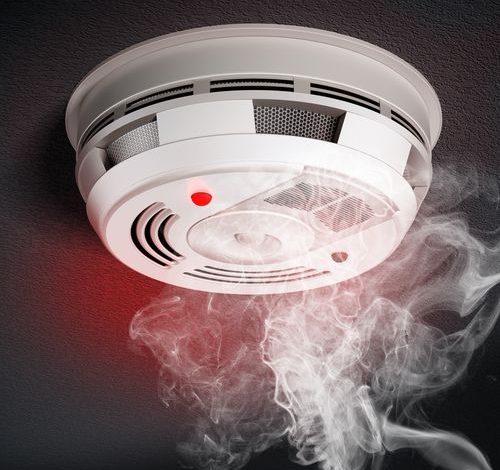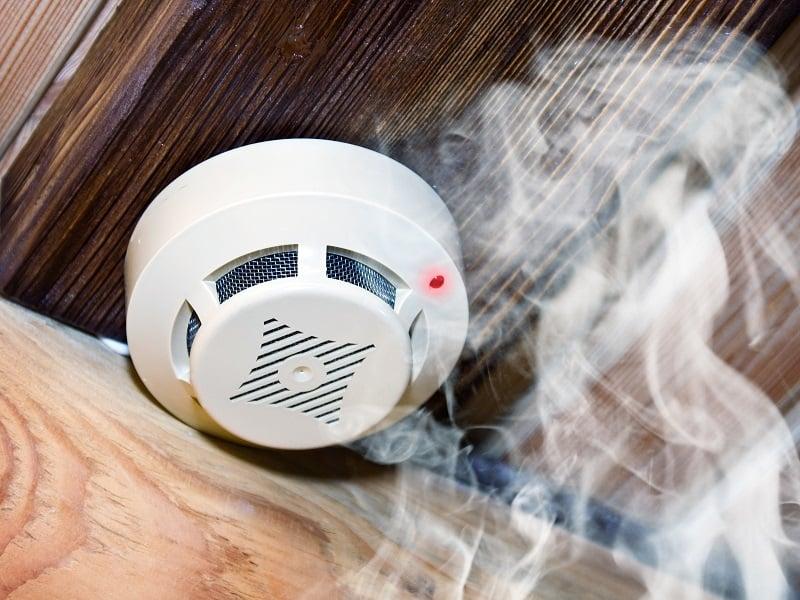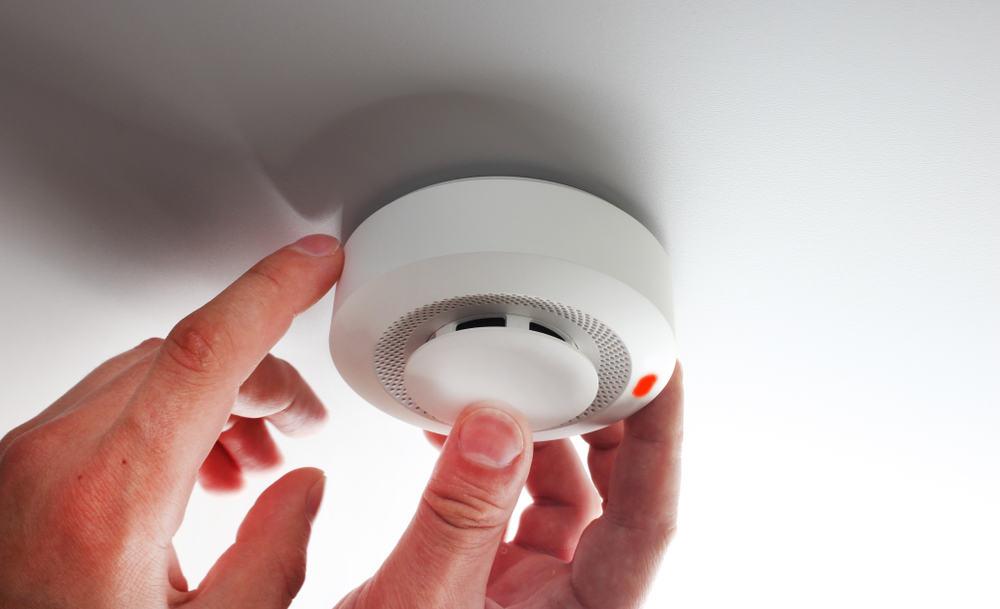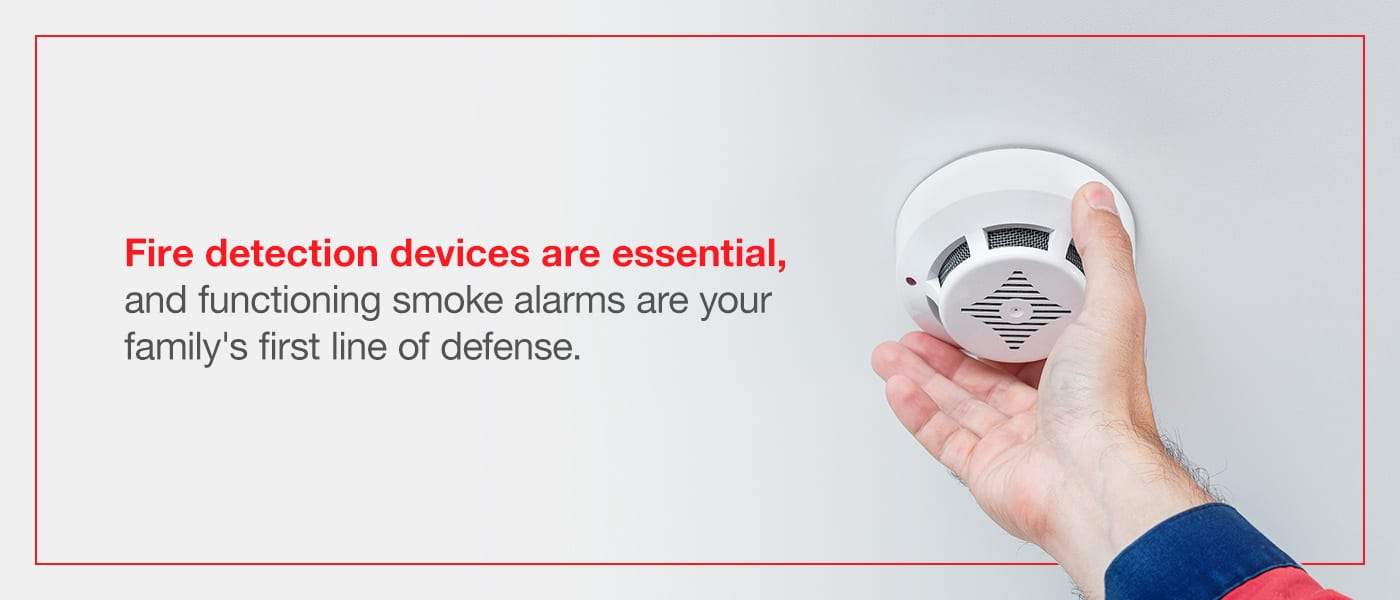The Importance of Fire and Smoke Dectectors
Imagine a world without fire and smoke detectors – a world where the silent dangers of fire and deadly smoke go undetected until it’s too late. These essential safety devices play a crucial role in protecting lives and property, providing an early warning that can be the difference between a minor incident and a devastating catastrophe. From residential homes to commercial buildings, the importance of fire and smoke detectors cannot be stressed enough.

Why Fire and Smoke Detectors are Important
Early Detection of Fires
One of the primary reasons why fire and smoke detectors are crucial is their ability to detect fires at their earliest stages. Early detection is vital as it allows you to take immediate action, such as evacuating the premises and calling the fire department. By providing an early warning, fire and smoke detectors give you precious time to escape safely and minimize potential damage.
Protection of Lives
The most valuable asset in any home is the lives of its occupants. Fire and smoke detectors play a critical role in safeguarding your loved ones. They are designed to detect the presence of smoke or fire, triggering a loud alarm that alerts everyone in the building. This early warning allows you and your family to escape quickly and find a safe location outside the home. The integration of fire and smoke detectors in your home substantially increases the chances of everyone making it to safety in the event of a fire emergency.
Protection of Property
Fires can cause extensive damage to property, resulting in significant financial loss. Fire and smoke detectors provide an early warning that can help mitigate property damage. By detecting fires in their early stages, these detectors enable you to take immediate action, such as alerting the fire department and using fire extinguishers, to extinguish or contain the fire before it spreads further. This timely response can save your property from severe damage and reduce the cost of repairs.
Compliance with Safety Regulations
Fire and smoke detectors are not only essential for personal safety but also necessary for complying with safety regulations. Many jurisdictions have strict requirements for the installation of fire and smoke detectors in residential and commercial properties. By ensuring the presence of these detectors in your home, you are not only protecting yourself and your family but also meeting legal obligations. Compliance with safety regulations not only prevents fines and penalties but also demonstrates your commitment to creating a safe living environment.
Different Types of Fire and Smoke Detectors
Fire and smoke detectors come in various types, each with its own set of detection capabilities. Understanding the different types can help you choose the most suitable detector for your specific needs.
Ionization Smoke Detectors
Ionization smoke detectors are one of the most common types of detectors used in residential settings. They operate by using a small amount of radioactive material to ionize the air inside the detector. When smoke enters the detector chamber, it disrupts the ionization, triggering the alarm. Ionization detectors are particularly effective at detecting fast, flaming fires that produce smaller smoke particles. However, they may be less sensitive to slow, smoldering fires.
Photoelectric Smoke Detectors
Photoelectric smoke detectors work by using a light source and a light sensor. When smoke enters the detector chamber, it scatters the light, triggering the alarm. These detectors are highly effective at detecting slow, smoldering fires that produce larger smoke particles. Photoelectric smoke detectors are less prone to false alarms caused by cooking smoke or steam, making them a good choice for installation in kitchens or bathrooms.
Dual Sensor Smoke Detectors
Dual sensor smoke detectors combine the features of both ionization and photoelectric detectors. By incorporating both detection technologies, they provide enhanced fire detection capabilities and are capable of sensing a wide range of fires. Dual sensor smoke detectors are an excellent choice for maximizing fire detection effectiveness.
Heat Detectors
Heat detectors are designed to respond to changes in temperature instead of smoke. They are primarily used in areas where the presence of smoke or fumes may result in frequent nuisance alarms, such as kitchens or garages. Heat detectors are highly reliable and suitable for environments where smoke detection may not be appropriate.
Combustion Detectors
Combustion detectors are specialized detectors used to detect specific types of fires, such as those caused by flammable gases or liquids. These detectors offer an added layer of protection in environments where certain types of fires are more likely to occur, such as laboratories or industrial facilities.

Proper Placement of Fire and Smoke Detectors
Proper placement of fire and smoke detectors is essential to ensure their optimal performance. Here are some key areas in your home where detectors should be installed:
Bedrooms
At least one smoke detector should be installed in every bedroom or sleeping area. This is crucial as fires can spread rapidly at night when occupants are asleep. Installing detectors in bedrooms will provide an early warning in case of a fire, allowing for a timely evacuation.
Living Areas
Smoke detectors should be placed in living areas, such as the family room or living room. These areas often contain a significant amount of electrical equipment and are commonly used, making them potential fire hazard areas.
Hallways
Installing smoke detectors in hallways can help ensure that occupants are alerted to a fire regardless of where it starts in the home. Hallways serve as common pathways for escape, and having detectors installed in these areas can facilitate a quick and safe evacuation.
Garages
Garages are prone to fires due to the presence of various flammable materials, such as gasoline, oil, and solvents. It is essential to have a smoke detector installed in the garage to provide early warning in case of a fire.
Kitchens
While kitchens can be a source of frequent false alarms due to cooking smoke and steam, it is still important to have a smoke detector in this area. Consider using a photoelectric smoke detector in the kitchen as it is less sensitive to cooking-related smoke, reducing the chances of false alarms.
Maintenance and Testing of Fire and Smoke Detectors
Regular maintenance and testing of fire and smoke detectors are crucial to ensure their reliability and effectiveness. Here are some key aspects of maintenance and testing:
Monthly Testing
It is important to test your fire and smoke detectors monthly to ensure they are functioning correctly. Most detectors have a test button that, when pressed, verifies the alarm and battery operation. Regular testing allows you to identify any malfunctions or issues and take appropriate action to rectify them.
Battery Replacement
The batteries in smoke detectors should be replaced at least once a year or whenever the low battery warning chirp is heard. It is recommended to use long-life lithium batteries, as they are less likely to fail or require frequent replacement.
Cleaning
Smoke detectors can accumulate dust and debris over time, affecting their performance. Regularly clean your detectors by gently vacuuming or using a soft brush attachment to remove any buildup. Avoid using any liquids or solvents, as they may damage the detector.
Professional Maintenance
Consider having your fire and smoke detectors professionally serviced at least once a year. Professional maintenance can ensure that all components are in working order, the sensors are calibrated correctly, and any necessary repairs or replacements are made. Hiring a qualified technician will give you peace of mind that your detectors are in optimal condition.

What to consider when buying a Fire and Smoke Detector
When purchasing fire and smoke detectors, there are several factors to consider to ensure you choose the most suitable one for your needs:
Type
Consider the specific types of fires you are most likely to encounter in your home. Different detectors are optimized for different types of fires, so selecting the appropriate type will enhance the detector’s effectiveness.
Power Source
Fire and smoke detectors can be powered by batteries or hardwired to your home’s electrical system. Battery-powered detectors provide flexibility in terms of placement and are not affected by power outages. Hardwired detectors, on the other hand, do not rely on batteries but require professional installation.
Interconnectivity
Interconnected smoke detectors allow all detectors in the home to be linked together. If one detector detects smoke or fire, all interconnected detectors will sound an alarm, providing a comprehensive warning throughout the entire property. This feature is particularly useful in larger homes or multi-story buildings.
Additional Features
Consider additional features that may be beneficial to you, such as carbon monoxide detection, voice alerts, or wireless connectivity to a home security system. These features can enhance the functionality and convenience of your fire and smoke detectors.
Potential Limitations and False Alarms
While fire and smoke detectors are highly effective, they can occasionally experience false alarms or have limitations in detecting certain types of fires. It is important to be aware of these potential limitations to understand the possible challenges you may face:
False Alarms
Cooking smoke, steam, or dust can sometimes trigger false alarms in smoke detectors. To minimize false alarms, be mindful of where you install your detectors and consider using specialized detectors in areas prone to frequent false alarms, such as kitchens or bathrooms.
Limitations in Detecting Some Types of Fires
No single detector can detect all types of fires. Each type of fire and smoke detector has its own limitations in terms of the specific fires it can detect effectively. It is crucial to choose the appropriate type of detector based on your specific needs and the potential fire hazards in your home.

The Importance of Fire and Smoke Drills
In addition to having fire and smoke detectors, conducting regular fire and smoke drills is equally important. These drills help ensure that everyone in the household knows how to respond in the event of a fire emergency. Here are a few reasons why fire and smoke drills are crucial:
Emergency Planning
Fire and smoke drills allow you to practice your emergency plan and ensure that everyone is familiar with the steps to take in case of a fire. It provides an opportunity to assess the effectiveness of your emergency plan and make any necessary adjustments.
Evacuation Routes
Drills help familiarize everyone with the evacuation routes and meeting points. By practicing these routes, you can identify any obstacles or issues that may hinder a quick escape and address them accordingly.
Safety Procedures
Fire and smoke drills reinforce safety procedures, such as staying low to the ground, using designated exits, and not re-entering the building once evacuated. Regular practice of these procedures increases the likelihood of a safe and efficient evacuation in a real fire emergency.
Integration with Home Security Systems
Fire and smoke detectors can be integrated into home security systems, providing an added layer of safety and security. Here are some benefits of integrating fire and smoke detectors with your home security system:
Enhanced Safety and Security
The integration of fire and smoke detectors with your home security system allows for a comprehensive approach to home safety. In case of a fire, the security system can automatically notify both the fire department and the homeowner, ensuring a swift emergency response.
Remote Monitoring and Alerts
Integrated fire and smoke detectors enable remote monitoring and alerts. You can receive notifications on your smartphone or other connected devices in case of a fire or smoke detection. This allows you to take immediate action, even when you are away from home, and have peace of mind knowing that your property is being monitored.

The Role of Fire and Smoke Detectors in Smart Homes
With the rise of smart home technology, fire and smoke detectors have evolved to become an integral part of interconnected home systems. Here are some ways in which fire and smoke detectors contribute to smart homes:
Interconnectivity with Other Devices
Smart fire and smoke detectors can be interconnected with other smart home devices, such as smart thermostats or lighting systems. In case of a fire, interconnected devices can perform coordinated actions, such as turning off the HVAC system or activating emergency lighting to facilitate a safe evacuation.
Integration with Voice Assistants
Fire and smoke detectors can be integrated with voice assistants, allowing for voice-controlled monitoring and alerts. You can use voice commands to check the status of your detectors, receive updates on battery levels, or silence false alarms, enhancing overall convenience and accessibility.
Conclusion
Fire and smoke detectors are indispensable tools for ensuring the safety and well-being of you and your loved ones. They provide early detection of fires, protect lives and property, and ensure compliance with safety regulations. By understanding the different types of detectors, proper placement, maintenance and testing procedures, and integration options, you can make informed decisions to enhance the safety of your home. Remember to conduct regular fire and smoke drills and consider integrating detectors with your home security system for added peace of mind. With these measures in place, you can rest assured that you are taking proactive steps to protect yourself, your family, and your property against the devastating effects of fires.




